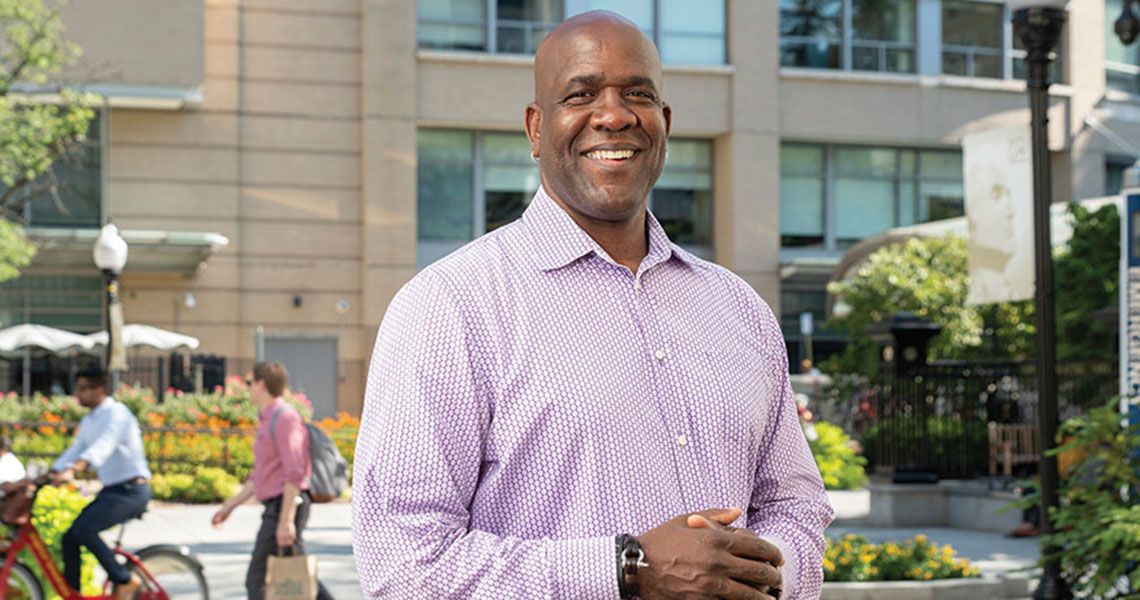Robert W. Turner II has a doctorate in sociology from the City University of New York, but his most significant degree was earned at the School of Hard Knocks — more familiarly known as professional football. Turner, assistant professor of clinical research and leadership at the George Washington University School of Medicine and Health Sciences, is uniquely qualified to explore mild Traumatic Brain Injury (mTBI) and its relationship to cognitive decline and dementia.
“What I’m trying to do,” says Turner, who was an offensive lineman in the Canadian Football League and the NFL, “is understand the psychosocial and neurocognitive factors as they are associated with accelerated cognitive decline, mTBI, and potential links to Alzheimer’s disease and related dementia.” The NIH-funded study will collect data using a mixed-method design that consists of a survey, focus groups, and in-depth interviews. At some point, brain imaging may also be employed, Turner says. His cohort will consist of two groups of former college and NFL players, one group with members 30–49 years old, and the other age 50 and above. Two similarly aged groups of people who have not played any contact sports will serve as controls.
The three research aims will enable Turner to integrate and apply knowledge gained through the proposed training activities by creating a more robust portrait of psychosocial protective and risk factors that may impact the long-term consequences of mTBI among men than previously possible. “What we hypothesize is that those who’ve had a higher degree of exposure to cognitive events will be impaired,” he says, “and we should see a correlation between cognitive impairment and white matter degradation over time.”
A major goal of the research is to reveal both the risk factors and the protective measures attending to mTBIs. “Are there things that these men can do that will guard against traumatic effects or brain injury over time?” Turner asks. “Do we see a link from injury to cognition and is that decline different from persons who do not sustain such an injury?”
The study is titled “An Analysis of Psychosocial Risk and Protective Factors: Accelerated Cognitive Aging and Mild Traumatic Brain Injury (MTBI) Among Retired NFL & Former NCAA Football Players.” The five-year grant from the National Institute of Aging concludes in 2022.



